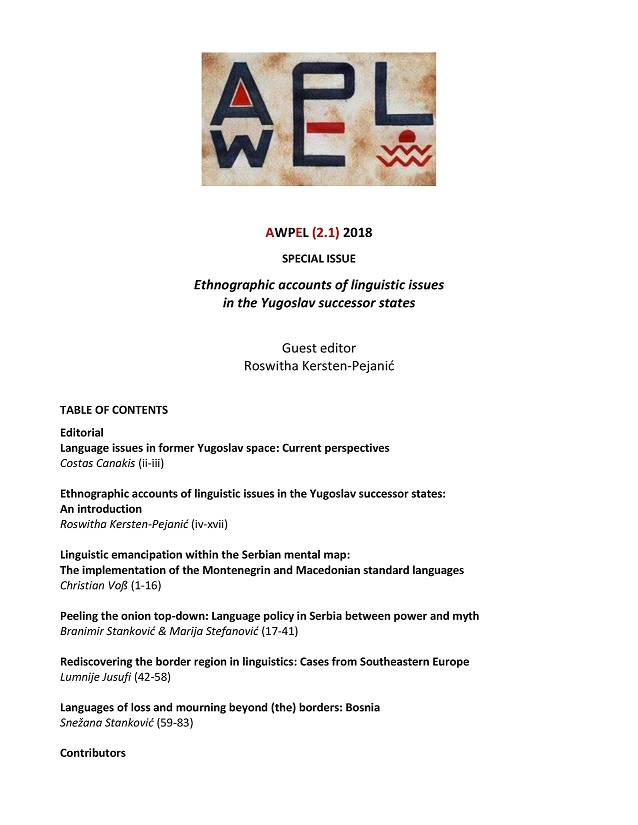Linguistic emancipation within the Serbian mental map: The implementation of the Montenegrin and Macedonian standard languages
Resumen
This paper explores the striking similarity in the hesitant implementation of the new Macedonian and Montenegrin standards, which has taken unusually long in both cases. As will be shown, a comparative look at the two standardisation processes reveals parallels of language politics in Macedonia after 1944 and Montenegro after 2006. In both cases the implementation of the new standard is hesitant, slow, and shows policy shifts. A key conclusion of this paper is that this normative vacuum is possible because Serbian, as the traditional H-variety, is omnipresent in both countries. This observation however implies an optimistic outlook for Montenegrin since Macedonian standardisation today can be assessed as a success story, despite continuous contestation from neighbouring countries. The paper focuses on both differences and commonalities of the standardisation process in these two Yugoslav successor states.
Article Details
- Cómo citar
-
Voß, C. (2019). Linguistic emancipation within the Serbian mental map: The implementation of the Montenegrin and Macedonian standard languages. Aegean Working Papers in Ethnographic Linguistics, 2(1), 1–16. https://doi.org/10.12681/awpel.20021
- Sección
- Articles

Esta obra está bajo una licencia internacional Creative Commons Atribución 4.0.
Authors who publish with this journal agree to the following terms:
Authors retain copyright and grant the journal right of first publication with the work simultaneously licensed under a Creative Commons Attribution licence that allows others to share the work with an acknowledgement of the work's authorship and initial publication in this journal.
Authors are able to enter into separate, additional contractual arrangements for the non-exclusive distribution of the journal's published version of the work (e.g. post it to an institutional repository or publish it in a book), with an acknowledgement of its initial publication in this journal.
Authors are permitted and encouraged to post their work online (preferably in institutional repositories or on their website) prior to and during the submission process, as it can lead to productive exchanges, as well as earlier and greater citation of published work (See The Effect of Open Access).



